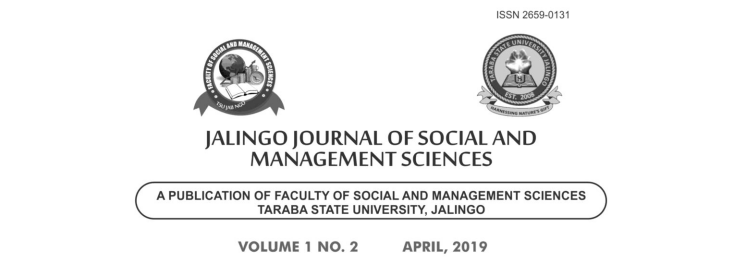Interrogating Challenges of Sectarianism, Terrorism and Socio-Economic Development of Nigeria.
Keywords:
Sectarianism, Terrorism, Politics, Socio-Economic DevelopmentAbstract
This paper examined the challenges of sectarian and terrorism crises with special focus on Boko Haram terrorism and its effects on the socio-economic development of Nigeria. Sectarianism and terrorism is a canker worm that has eaten deep into the fabrics of the Nigerian state with its negative implications on the well-being of the people. To achieve this objective, the paper adopted the descriptive design as a basis of analysis. The paper also employed the State Failure theory as a framework of analysis. The choice of this theory is in line with the inability of the Nigeria state to address the seemingly intractable sectarian and most recently, the Boko-Haram crisis which has threatened her corporate existence over the years. There exist several religions in Nigeria and many of them are exploited for political gains. Within the last couple of decades, Nigeria has witnessed astronomical rise in the number of radical Islamic sects notably among them, Maitasine, Darul Islam, and Boko Haram. These sects have resorted to the use of violence in a bid to realize their ambitions of a wider islamization of the Nigerian population. Three of the most prominent perspectives shared on the rise of these radical movements are: poor socio-economic infrastructures and poor governance, poverty and aiding of religious extremism by politicians for their selfish ambition. This study reveals that while it is true that socio-economic factors may drive the radicalization and politicization of religious sects in the country, the fear of domination and indeed the fight for supremacy is at the heart of the current terrorism-insurgency in northeastern Nigeria. The conclusion is also that sectarian and terrorists activities have posed serious challenges on the socioeconomic development of Nigeria. Recommendations were made on the need for an urgent initiation of bottom-top security approach anchored on local community intelligence. Transparency, probity and accountability in public governance process are irreducible minimum requirements for good governance and sound economic performance for improved citizens’ living conditions so as to tame the rising wave of sectarian and terrorists activities in the country.

Downloads
Published
Issue
Section
License
Copyright (c) 2023 JALINGO JOURNAL OF SOCIAL AND MANAGEMENT SCIENCES

This work is licensed under a Creative Commons Attribution-NonCommercial 4.0 International License.
